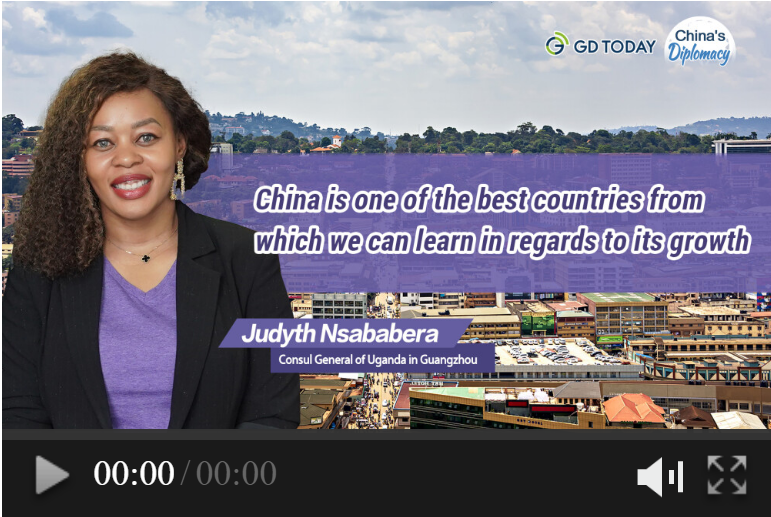Editor’s note:
The 2024 Summit of the Forum on China-Africa Cooperation (FOCAC) will be held in Beijing from September 4 to 6. Under this particular cooperation framework, China and African countries are expected to deepen exchanges in multiple major areas. In light of this special occasion, GDToday is conducting exclusive interviews with African delegates, shedding light on China-Africa relations, now and in the future.
Judyth Nsababera, Consul General of Uganda in Guangzhou, recently shared her insights on the evolving dynamics of China-Africa relations with GDToday ahead of the 2024 Forum on China-Africa Cooperation (FOCAC). The summit, which returns to Beijing after a few years, holds great promise for deepening the partnership between the two regions.
Nsababera expressed optimism about its potential impact. “One key outcome I hope to achieve at this summit is how we translate these commitments and opportunities to the small and medium-sized enterprises and young people, not just in Uganda, but the whole of Africa,” she stated.
She also underscored the significance of the ‘China-Africa Vision Cooperation 2035,’ which aims to enhance bilateral trade, advance industries, and promote eco-friendly growth models between the two regions.
Uganda and China share a deep historical connection
Ten years ago, bilateral trade between Uganda and China was around 600 million U.S. dollars. By the end of 2023, it grew to 1.3 billion dollars, of which Uganda’s exports to China increased by 19 percent to 70 million dollars, according to the Chinese Embassy in Kampala.
“It is a deeply historical connection from China’s support to Uganda during the colonial struggle to supporting economic and social transformation,” Nsababera said.
Within the frameworks of the Belt and Road Initiative (BRI) and the Forum on China-Africa Cooperation (FOCAC), China and Uganda are working towards win-win cooperation to achieve common development.
Under the BRI, China financed and constructed two hydropower plants, Karuma Hydropower Plant and Isimba Hydropower Station, that are critical to addressing Uganda’s increasing energy needs and facilitating its industrialization.
Today, China is Uganda’s largest source of foreign direct investment, particularly in light manufacturing and agro-processing, which are vital to the country’s industrialization.
China-Africa cooperation allows individuals to realize dreams
Nsababera also shared a personal story that illustrates the success of China-Africa cooperation at an individual level.
She recounted how a Chinese entrepreneur from Dongguan in Guangdong Province, who faced the closure of his furniture business during the pandemic, found new opportunities in Uganda.
“He became convinced to go to Uganda,” she said. “There are already 300 local workers, and the company is now on a normal track. The products are on sale, and customers have responded very well.”
Nsababera told us that the entrepreneur’s initiative not only created jobs but also brought technological expertise and cultural exchange, with daily Tai Chi sessions for his employees.
“Most of the time, we’re looking at huge infrastructure investment projects,” said Nsababera, “but this is a man who took his savings and just went with a dream and started.”
Rapid transformation of Chinese cities providing examples for Africa
Nsababera’s tenure in Guangzhou has also given her a deep appreciation for the city’s unique qualities. “I love Guangzhou,” she remarked.
“The sense of security and the friendliness of the people are remarkable. People are very warm and welcoming, making it feel like you’re back home.” She also praised Guangdong’s cuisine, noting its similarity to Ugandan food in its natural flavors.
Nsababera highlighted the rapid transformation of Chinese cities as a model for Africa‘s growth. “There are places I go to in Guangzhou, which 25 years ago were rice fields. But they have developed into these really buzzing cities,” she noted, emphasizing the importance of learning from China’s technological advancements.
Reporter | Xachary, Steven
Script | Xachary
Cameraman | Wiingheng
Video | Wiingheng
Poster | Mia
Editor | Steven, Monica, James

